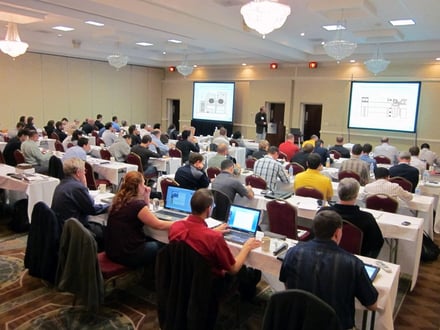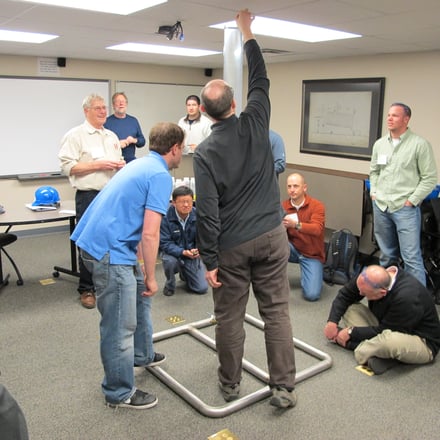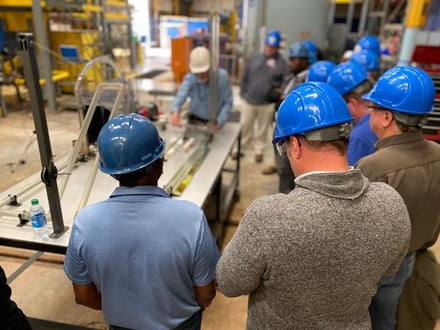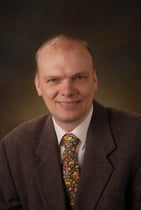
Václav Matoušek is a respected professor who has been researching the topic of slurry transport for 30 years. He has written two theses on the topic and shares his knowledge of slurry pumping as one of the professors of the GIW course “Transportation of Solids Using Centrifugal Pumps.” We sat down with Dr. Matoušek to learn why he was inspired to join the teaching team and how he views the evolution of slurry transport technology.
What is your experience in mining and slurry transport? How does your experience contribute to GIW’s slurry transport course?
VM: My experience with slurry transport has been built throughout my entire professional career. I did my master’s and Ph.D. theses on slurry transport. Additionally, I have completed research on slurry transport in hydraulic laboratories in the Czech Republic and the Netherlands for 30+ years. I hope to contribute to the course through my knowledge of processes and physical mechanisms governing slurry transport.

Why did you choose to become an instructor? What specific things attracted you to join the teaching team?
VM: I have been teaching university courses throughout my career and find it a privilege to teach the slurry course. Many things attracted me 15 years ago — the slurry topic, the teaching team, and excellent course facilities such as the GIW Hydraulic Lab. Most importantly, I enjoy the food offered during the course week!
What do you consider to be your particular strength(s)?
VM: I usually rely on others to outline my strengths. Perhaps they would say my particular strengths are my experience with experimental testing and mathematical modeling of slurry flows.
What are your research interests?
VM: My research work has focused on mathematical and experimental modeling of two-phase flows with particular emphasis on pipeline transport of slurries, slurry pumping, flow of rheologically active slurries, sediment transport in open channels, and river morphology.
What courses will you be teaching? Do any of them particularly excite you, and why?
VM: I enjoy teaching all topics because they are all related, and each has its place in the course structure. What particularly excites me is the possibility of directly connecting theoretical lectures with practical working sessions and laboratory demonstrations.

GIW has been offering this course for 40+ years. What areas would you like to expand upon during your tenure?
VM: We are working on expanding our experimental database, which helps us understand better slurry transport under various conditions and validate our transport predictive models taught in the course. I would also like to contribute to the further development of these sophisticated predictive models. Currently, we are working on a new edition of the book
Slurry Transport Using Centrifugal Pumps, which is used as a text in the course. This new edition offers a substantial update with a lot of new information. I'm excited to see it published soon.
What is your philosophy of teaching and learning?
VM: I like to teach technical courses by effectively combining fundamental theories with practical examples and demonstrations — that is why I like the emphasis on laboratory activities. I always include labs in my university courses when possible. As a teacher, it is also important to learn how to better teach my students. In this respect, my students’ interest and progress in the topics are the best feedback.
Tell us about your vision of the field: Where do you think the field is headed in the next five years? How does that relate to the preparation of engineers?
VM: The industries using slurry transport will have to increase their efficiency and better control operations. They will also have to consider environmental aspects, including water shortages in a growing number of regions around the world. This efficiency and operations work will have to be done by engineers to better understand physical mechanisms and processes associated with slurry transport.

Is there anything else you would like us to know?
VM: I would emphasize how well this course is organized and how closely it focuses on continuous improvements through students’ feedback.
 About Dr. Václav Matoušek
About Dr. Václav Matoušek
Dr. Matoušek is a full professor in the Department of Civil Engineering at Czech Technical University in Prague, Czech Republic. He is also a research fellow with the Institute of Hydrodynamics at the Czech Academy of Science in Prague, Czech Republic. His professional research activities include water, mining, and environmental engineering projects requiring expertise in hydraulics and fluid mechanics, particularly involving flows in industrial and environmental applications. For 13 years, he worked with the Delft University of Technology in the Netherlands and researched slurry transport in dredging.
